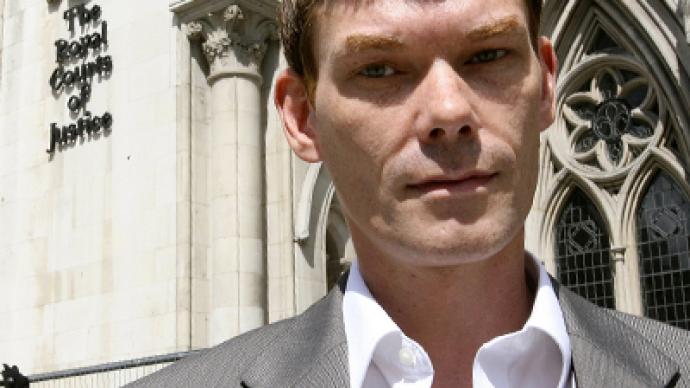Hopes were raised that British computer hacker Gary McKinnon may win his ten-year legal battle against extradition to the US after a Home Office medical report warns he may commit suicide if tried stateside.
British Home Secretary Theresa May is expected to announce her decision to Parliament on Tuesday. McKinnon’s family has been shown the new medical report, and is delighted by the news. “Although it’s saying bad things about Gary’s health, its very good news. For them to come out and say Gary not even might or could but will take his own life if it proceeds, and they can give no reassurances, I would have thought it would be very difficult for the government to go ahead,” Janis Sharp, McKinnon’s mother, told The Guardian. The study by professors Declan Murphy and Tom Fahy spells out the risks the British government would face if it went ahead with the extradition. The same experts in July concluded that McKinnon’s risk of suicide was “moderate.” Since then they have studied reports from three experts on Aspergers and suicide, who examined McKinnon earlier in the year. The new report, dated September 24, reads: “It is clear that there is a significant risk of suicidal behavior and that Mr. McKinnon ‘will do’ what he has threatened for the last three to four years if the extradition proceeds. On this specific point, we cannot offer reassurance to the authorities who are dealing with the case.” McKinnon was arrested in March 2002 for allegedly hacking into dozens of NASA and Pentagon computers over a 13-month period from his bedroom in North London. He has admitted the security breaches but said they were unintentional and that he was looking for evidence of UFOs. American officials insist that he caused thousands of dollars in damage and want to prosecute him on charges that could bring a jail sentence of up to 60 years.The subsequent extradition fight, which has seen unsuccessful appeals at the House of Lords and the European Court of Human Rights, has centered on his mental health issues and the risk that he will kill himself if extradited. His mother, who has campaigned tirelessly against the extradition, secured guarantees from the Liberal Democrats when they were in opposition, and David Cameron has raised the issue twice with US President Barack Obama. But there has been a delay since Britain's new government took power in May 2010. “Before the coalition got in, Nick Clegg stood by my side outside the Home Office to support me, and David Cameron spoke up for Gary and said he should be tried here. When they won the election we wept as thought Gary was home and dry. Then nothing happened,” Sharp explained. A Home Office spokesman said “This is a complex case, in a complex area of the law, and a large amount of material has been submitted, some of it relatively recently. The Home Secretary needs to consider all the material carefully before making a decision.” May’s decision was due to be announced in July but was delayed until October because of the Olympics. The effect of the ten-year wait has taken a heavy toll on McKinnon and his family.“I’ve gone through all our money. Gary hasn’t got an outlet. He can’t go online. He’s a really good musician but he hasn’t touched an instrument for years because he can’t deal with what I would bring up. So he sits in the dark with his cats. He’s lost 10 years of his life,” Sharp said.


